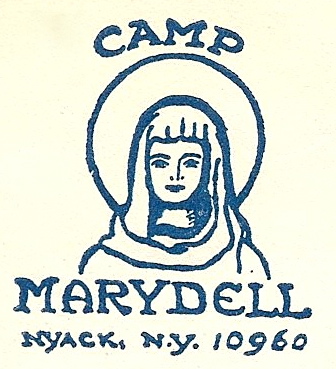by Joanie Butman
The nutritional program I discussed in January is a distant memory, and though my body stubbornly holds firm at the same weight, I feel healthier as a result of the minor adjustments I’ve implemented. I don’t think the nutritionist will be making me the poster girl for her program any time soon. Frankly, Catherine Aird’s quote is more or less the strategy I’ve adopted in life, “If you can't be a good example, then you'll just have to be a horrible warning.”
I may have mentioned the program espoused temporarily eliminating “noisy foods.” She defined noisy foods as “inflammatory, allergenic, addictive or just not supportive of your best health.” The list consisted of my entire diet: meat, dairy, wheat, sugar, caffeine, alcohol. What I discovered through the program was that while I didn’t necessarily need to remove any or all of them, I felt much better when I cut back the amount I was consuming. Above all, it made me more mindful about what I ingest.
Well, ‘noisy’ isn’t confined to food. It’s even more challenging exercising discernment as it relates to what I put into my mind amidst the cacophony of information that bombards me daily. I don’t know about you, but I am on information overload. Thanks to the internet, iPhone, TV, radio, email, Facebook, etc. it comes in faster than I can process. Therefore, it is a constant struggle weeding out what is relevant and what is not. Too often, the irrelevant becomes so loud it drowns out the truly important stuff that vies for my attention.
The observance of Lent, which began this Wednesday, provides the same opportunity as that nutritional program to reduce or eliminate “noisy foods” in my spiritual diet, which could probably be described in a similar vein. I’ve always felt Lenten sacrifices are more than a little self-serving – at least in my case because I tend to be the beneficiary. Seriously, is it never all about me? The by-product of my effort might be a kinder, non-complaining, non-gossiping person or maybe even a thinner, healthier, more clear-headed version of my former self (if only for the requisite 40 days). It doesn’t always include abstinence, sometimes it involves choosing to doing something extra – maybe a philanthropy project, a Lenten Bible study, reading a spiritual book or just allocating a certain portion of each day to quiet time with God. Whatever I choose, it most certainly makes me feel better because who gives up something that’s not bad for you to begin with?
So, what’s the downside? None in my mind. In fact, I was surprised to learn that there are those who view it with disdain considering it an effort to earn God’s favor, which couldn’t be further from the truth. I don’t view Lent as an extra credit project. I don’t choose to give something up or take something on during Lent to earn favor or forgiveness. I choose to do it because I already have them. I suppose the important question to consider is why you choose to participate. I do it because it gives me the opportunity to realign myself with God by turning down the volume of distractions that prevent me from enjoying the symbiotic relationship God desires, to strengthen our relationship through His power not my own. It’s a form of worship, an expression of love and gratitude for the sacrifice Christ made on my behalf. It’s no different than wanting to do things you know any loved one would appreciate – something that tells them how much you treasure them and how grateful you are for their presence in your life.
True to form, I ushered in Lent with a decadent Fat Tuesday this past week eating and drinking copious amounts of pasta, wine and dessert – three of my favorite food groups. Remembering how miserable I felt the next day will be excellent incentive to persevere through Lent without them – except during the Spring Break trip I’m leaving on tomorrow. Everyone knows if your vacation falls during Lent, you get a papal dispensation – especially if it involves leaving your country of origin. And if that doesn’t ring true, I could join the camp of people who believe you get Sundays off. The mathematical basis for this argument is that if you count the days from Ash Wednesday to Good Friday, it is actually 44 days not the prescribed 40. This anomaly provides the leeway to subtract the four Sundays. I don’t know of any rule that would prevent me from using all my Sundays on my trip to the Dominican Republic chaperoning a group of seniors from my son’s school. Perhaps that in itself could be my Lenten offering – having to be the responsible adult for six straight days, not a role at which I excel - which brings up my next point.
Much like my efforts in that nutrition program, the emphasis shouldn’t be whether you choose to execute your effort with perfection, just perseverance. The only perfection required is the purity of your desire to do it at all and the perseverance to start again even if you slip up. Think of when your children were young. Some of the purest expressions of love are the imperfect ones children present in their early years. You know the type – the bouquet of weeds tenderly offered is the first that comes to mind. They are the cherished ‘I love yous’ that can’t be bought in a store, the ones you can’t throw out, the ones hidden in your heart and/or your memory box, perfect in their imperfection. It would be unthinkable to judge or criticize the efforts of a child to express his or her love for you. So it is with God and us.
As I mentioned, there are those who view the observance of Lent as an attempt to kiss up to God, which couldn’t be further from the truth. If it were, my efforts wouldn’t get me much. However, when you choose to offer your desire and perseverance to try to do better – regardless of how imperfect, God ‘multiplies this little gift and fills it with the transforming power of His love’ strengthening and encouraging any effort on our part. This holds true every day, not just the 40 (or 44) days of Lent.
P.S. The senior high school trip to the Dominican I mentioned will be followed by a second ‘senior’ trip to Florida to visit my parents and in-laws. Frankly, I don’t know on which trip it will be harder to adhere to my Lenten resolutions. Either way, I won’t be sending out any writing over the next two weeks and am counting on my ‘field research’ to provide lots to discuss upon my return.









































